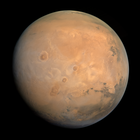Wikipedia:Today's featured article
|
Today's featured article Each day, a summary (roughly 975 characters long) of one of Wikipedia's featured articles (FAs) appears at the top of the Main Page as Today's Featured Article (TFA). The Main Page is viewed about 4.7 million times daily. TFAs are scheduled by the TFA coordinators: Wehwalt, Dank and Gog the Mild. WP:TFAA displays the current month, with easy navigation to other months. If you notice an error in an upcoming TFA summary, please feel free to fix it yourself; if the mistake is in today's or tomorrow's summary, please leave a message at WP:ERRORS so an administrator can fix it. Articles can be nominated for TFA at the TFA requests page, and articles with a date connection within the next year can be suggested at the TFA pending page. Feel free to bring questions and comments to the TFA talk page, and you can ping all the TFA coordinators by adding " |
Featured article candidates (FAC) Today's featured article (TFA):
Featured article tools: |
From today's featured article
From tomorrow's featured article
Doom is a first-person shooter video game and a reboot of the Doom franchise released on May 13, 2016. Players take the role of an unnamed space marine who battles demonic forces within an energy-mining facility on Mars and in Hell. The game also has an online multiplayer mode and a level editor. Developer id Software and co-developers took eight years to make the game. Their project "Doom 4" was fully overhauled in 2011 to better replicate the tone of the original Doom of 1993. Bethesda Softworks published the 2016 Doom as the first major series installment following Doom 3 in 2004. Its single-player campaign, graphics, soundtrack, and gameplay received considerable praise, while its multiplayer mode drew significant criticism. Doom became a best-seller, with more than two million PC copies sold by the next year. Multiple industry outlets named Doom among 2016's best video games. It received a sequel four years later. (Full article...)
From the day after tomorrow's featured article
Mars is the fourth planet from the Sun. It was formed approximately 4.5 billion years ago, is a terrestrial planet and is the second smallest of the Solar System's planets with a diameter of 6,779 km (4,212 mi). A Martian solar day (sol) is 24.5 hours and a Martian solar year is 1.88 Earth years (687 Earth days). Mars has two small and irregular natural satellites: Phobos and Deimos. Carbon dioxide is substantially present in Mars's polar ice caps and thin atmosphere. It has the highest mountain in the solar system, Olympus Mons, and the largest canyon, Valles Marineris. There are large annual temperature swings on the surface, between −78.5 °C (−109.3 °F) and 5.7 °C (42.3 °F) – similar to Earth's seasons. Due to its geological history, the possibility of past or present life on Mars remains of great scientific interest. Mars has been explored by uncrewed spacecraft and rovers, and is an attractive target for future human exploration missions. (This article is part of a featured topic: Solar System.)




